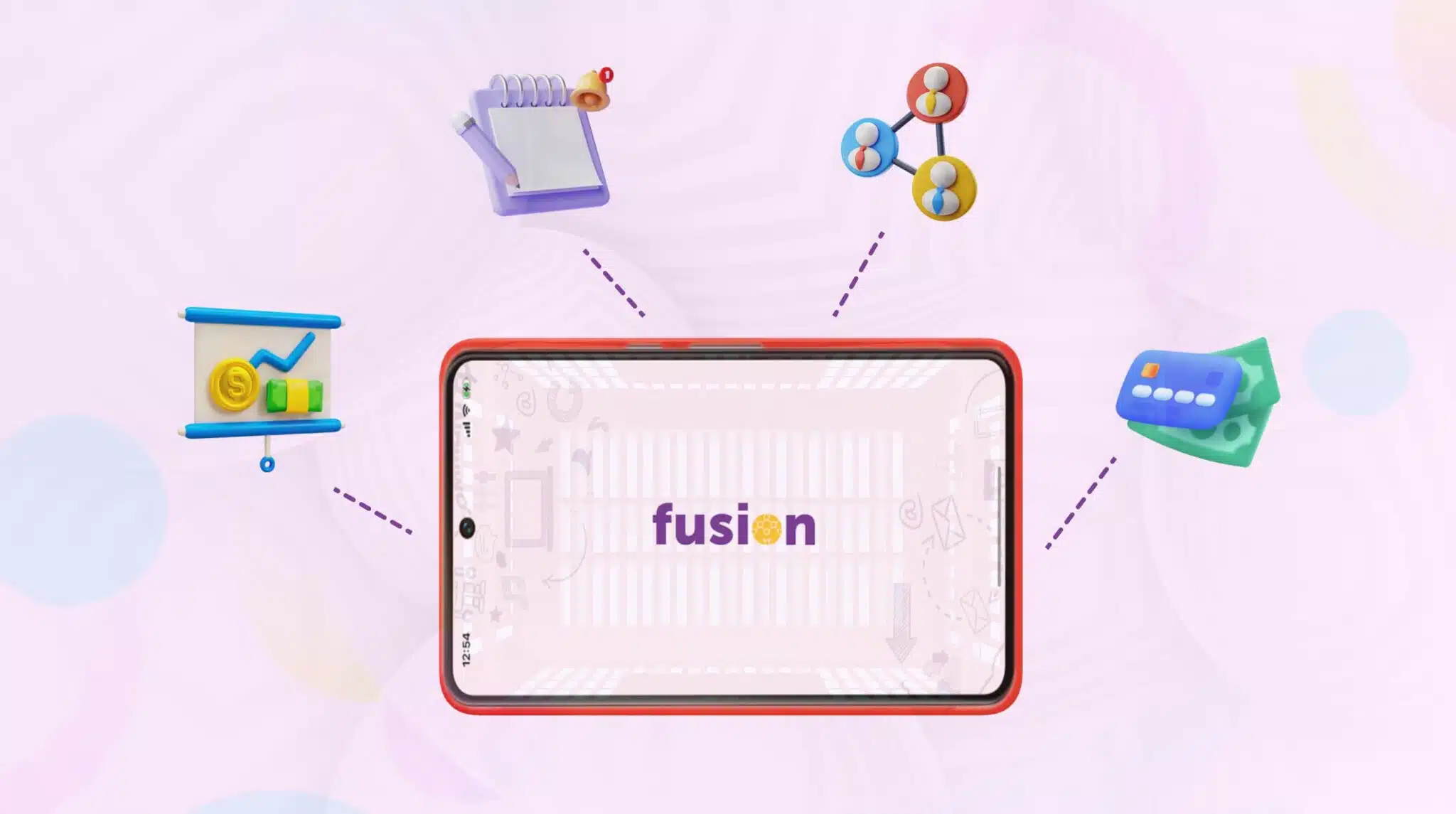In March 2024, ByteDance shut down its messaging app, LetsChat, after just three years.
The app, which aimed to capture Africa’s growing digital audience, failed to achieve mainstream adoption, with ByteDance citing a shift toward more profitable ventures in its parting message.
With that, LetsChat became yet another social media casualty on the continent, joining the ranks of platforms like 2go, LagChat, and Mxit.
Despite these failures, OrevaOghene Ben-Orupete, Virality and Growth Manager at Fusion, believes the two-year-old platform has what it takes to succeed where others have stumbled.
A community-first approach to social media
Unlike conventional social media platforms, where individuals are at the centre of engagement, Fusion builds its experience around communities.
“For other social media platforms, the individual is front and centre, but for Fusion, we want to put people with similar interests in one place,” Ben-Orupete explains.
This focus on community can be traced back to the platform’s creation. Café One, one of many spin-offs from Sterling Bank, has been slowly making a play for being a place where physical communities form, but according to Kelechi Nwaozuzu, General Manager at Café One, after individuals left its spaces, there were no conducive places to keep them engaged until the next physical meetup.
While social media platforms like WhatsApp and Telegram are being used to manage online communities, she says they were not suitable for use, hence the creation of Fusion. Today, communities on Fusion have extended beyond those hosted by Café One and cater to varying interests.
Initial capital was provided by Sterling Bank, but Ben-Orupete notes that Fusion now functions as a standalone entity and is in the process of raising fresh capital.

Victoria Fakiya – Senior Writer
Techpoint Digest
Make your startup impossible to overlook
Discover the proven system to pitch your startup to the media, and finally get noticed.
The WeChat ambition
Fusion’s long-term goal extends beyond social networking. The company envisions becoming a super app akin to WeChat, integrating various lifestyle services.
To achieve this, it is gradually rolling out key features. In addition to the social element, it has rolled out a wallet that users can use for savings, bill payments, and even investments — a partnership with Nigerian fintech, Bamboo, helps it offer investment services right from the app. Meanwhile, Sterling Bank provides it with the financial infrastructure for its fintech play.
The wallet plays a central role in the platform’s vision as it powers much of the features it plans to launch.
A marketplace for products and services is in the works, while it has rolled out event ticketing, which directly feeds into the communities. It’s also working on brand partnerships, which it will provide as perks to its users.
Business model and growth strategy
Fusion’s business model allows it to generate revenue on multiple fronts. Event tickets sold via the platform attract a 4% transaction fee. Unlike most payment service providers, ticket sales from Fusion go directly into an event owner’s wallet, eliminating the need for settlement while providing event organisers with instant access to their funds.
Its financial ecosystem is also seeing traction. Since its launch in 2023, the platform has processed over ₦100 million in payments, while the recently brokered partnership with Bamboo allows it to earn more through commissions.
With 50,000 users since launch, Fusion falls short of the numbers recorded by previous challengers. LetsChat signed up nearly seven million users and, at its peak, had more than 400,000 monthly active users.
While acknowledging that it is way behind these players, Ben-Orupete shares that the platform employs a multifaceted approach for user acquisition.
In addition to the initial users it gained through Café One, it rolled out a campus ambassador programme in October 2024, rewarding students for referrals. That approach has been fairly successful, with students from the University of Lagos and the University of Ilorin joining Fusion.
Can an African WeChat succeed?
In 2011, a Chinese engineer sent an email to his boss proposing that the company build a smartphone-based communications tool. The result was Weixin, now known as WeChat, and a super app pioneer.
WeChat’s success in China — it racked up more than 200 million users in its first year — drove it to explore growth opportunities in new geographies. It launched in South Africa in 2013 but struggled in the face of WhatsApp’s dominance and reportedly reduced its workforce in Nigeria.
The premise of super app providers is simple: users don’t want to trawl through multiple apps to access services on their phones. Therefore, these apps provide one app from which users can access multiple services. To do this, they often begin with a core use case, which builds consistency in users before layering more services.
While that sounds straightforward, it has not played out successfully in Africa, despite the continent having on paper most of the attributes required for success. Gozem, a Togolese startup, launched in 2018 with a ride-hailing service, on which it has since added payments, logistics, and delivery services.
Safeboda took a similar route, launching a ride-hailing service in Uganda before adding payments. Meanwhile, telecommunications provider Cellulant launched Tingg, which it described as a payments, commerce, and financial services super app.
All three players have seen minimal success. Tingg is now primarily a payments services provider, while Safeboda significantly scaled down its services after struggling in Nigeria and Uganda.
So why does the Fusion team believe it can succeed where most have struggled?
“We’re building out the components in sections rather than releasing all features at once,” Ben-Orupete shares. “For example, we built out the basic wallet and the social experience. From there, we added airtime and data, which our users use a lot.”
Challenges and the road ahead
With the hurdles that accompany building a super app, Ben-Orupete shares that Fusion is betting on its communities to drive retention and user adoption.
“Our thinking is if you spend most of your time here, you would want to start doing things here.”
The company is leveraging gamification to drive user engagement, and he adds that a phased approach to releasing product features will help it determine what features users need without committing significant resources. Competing in a market with established players means it also has to do lots of user education to show the value of Fusion.
Having built out the communities segment, it plans to double down on driving activities on its marketplace, selling more tickets, and closing more partnerships that allow it to provide valuable perks to users. With these features indirectly placing it in competition with larger players, the platform focuses on features that it believes add the most value to its audience.
“We want to build Fusion as the lifestyle application for everything,” he says.










